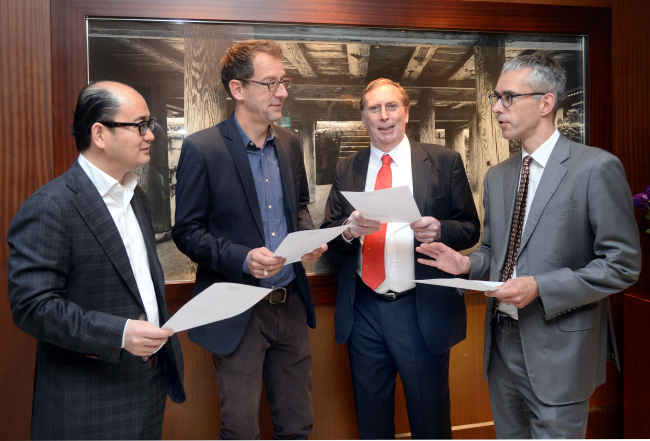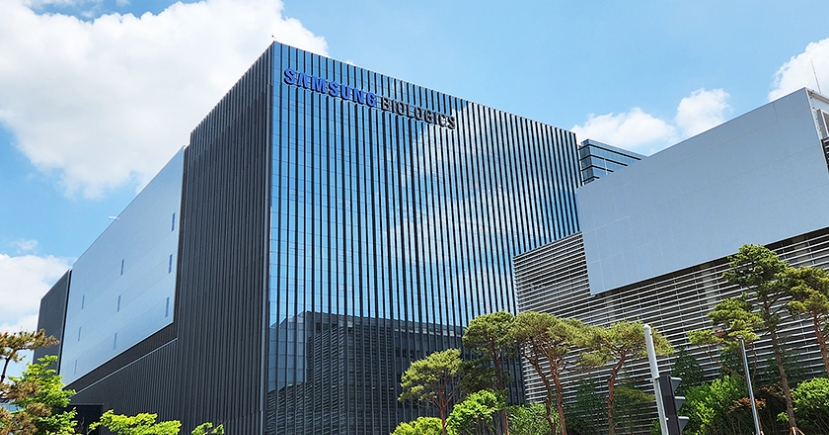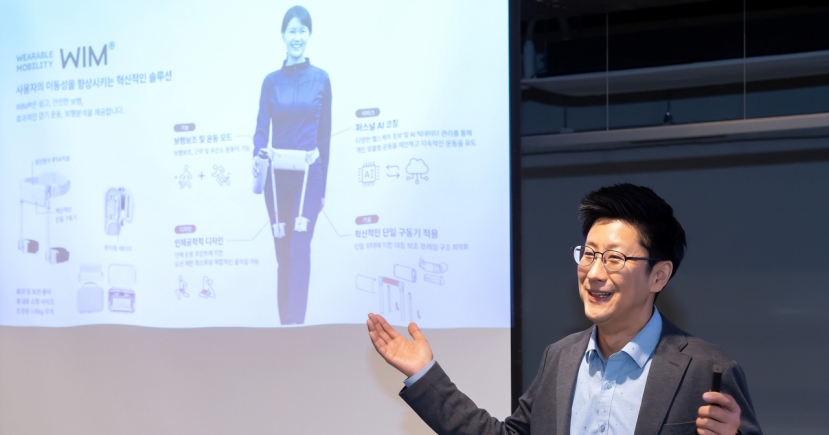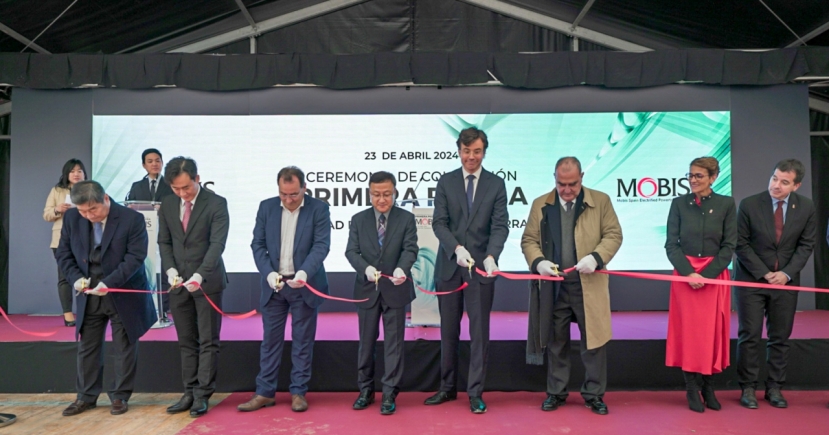Economy
Predictability should be top priority for Korean gov’t: ECCK
[THE INVESTOR] The top priority of the Moon Jae-in government should be to secure policy balance and predictability, according to foreign business representatives at a roundtable discussion co-organized by The Korea Herald, The Investor and the European Chamber of Commerce in Korea on Oct. 30.
While agreeing that it’s vital for economic policies to improve the quality of life by raising basic income and welfare, the attendees emphasized that income-led growth proposed by the Moon administration should be balanced out to prevent any side effects on overall economic growth.
“I’ve been in Korea since 2010 and every new administration has changed the economic direction,” said Christoph Heider, president of the ECCK. “I think a country should have an overall strategy that is independent of the president so that each new government can just do with fine-tuning.”
 |
(From left) Lee Soo-sung, managing partner of Roland Berger, IKEA Korea Country Retail Manager André Schmidtgall, Korea Associates‘ Business Consultancy managing director Tony Michell, ECCK President Christoph Heider gathered to discuss the Moon Jae-in government’s economic policies on Oct. 30. (Photo: Park Hyun-koo / The Korea Herald) |
Touching on the issue of minimum wages and income-led growth strategies, Tony Michell, managing director of Korea Associates Business Consultancy who has been in Korea since the 1970s, said that the government might be looking too narrowly as to whose income should be raised.
“Profit is also income. Increasing profits for small and medium enterprises and self-employed who account 25 percent of the total workers is also important,” Michell said.
IKEA Korea Country Retail Manager André Schmidtgall said that initially, the firm had been a bit perplexed when they set up office here due to the lack of guidelines regarding income structures. “Everyone benchmarks everyone else in Korea because it’s so competitive, but we felt we wanted a set of fixed guidelines,” he said.
Lee Soo-sung, managing director of global consultancy Roland Berger, emphasized that policies focusing on the labor side should be balanced out by encouraging corporate investments and flexibility of labor. “Both labor and capital, and both demand and supply sides should be balanced to achieve the (target) economic growth.”
Korea posted market-beating 1.4 percent GDP growth in the third quarter and is now expected to achieve close to 3 percent growth this year.
Regarding the administration’s energy policies, Lee noted concerns among the business circles about phasing out nuclear energy. “Korea’s low electricity bill is one of the advantages of doing business here and if you lose that competitiveness, even local companies may considering moving their businesses elsewhere,” he warned.
Michell, however, pointed out that with renewable energy getting cheaper, Korea must move more quickly. “There is a whole revolution coming in the energy sector. Korea can be in the front or the back of the curve,” he noted.
Regarding business sentiments, all the attendees agreed that Korea was definitely not in a crisis, although there are some concerns about the latest economic growth being driven by exports of specific sectors and a global recovery.
“Germany saw 1.9 percent growth last year, and that’s an economic miracle, so business is really booming in Korea,” said Heider. “The perceptions have to change and Koreans should be super proud of its current economic growth.”
By Park Ga-young (gypark@heraldcorp.com)


![[From the Scene] KG Mobility poised to take next leap](http://res.heraldm.com/phpwas/restmb_idxmake.php?idx=151&simg=/content/image/2024/04/24/20240424050621_0.jpg)





